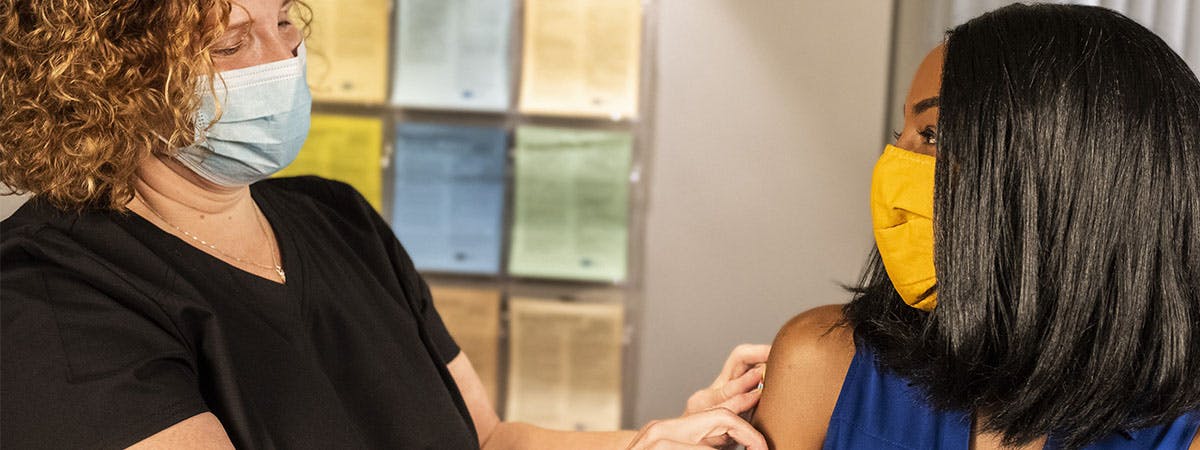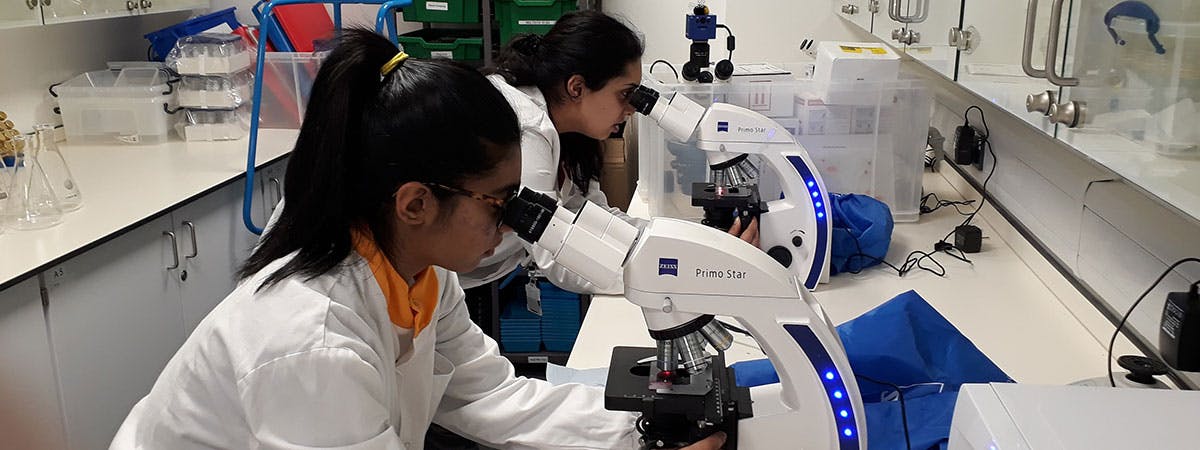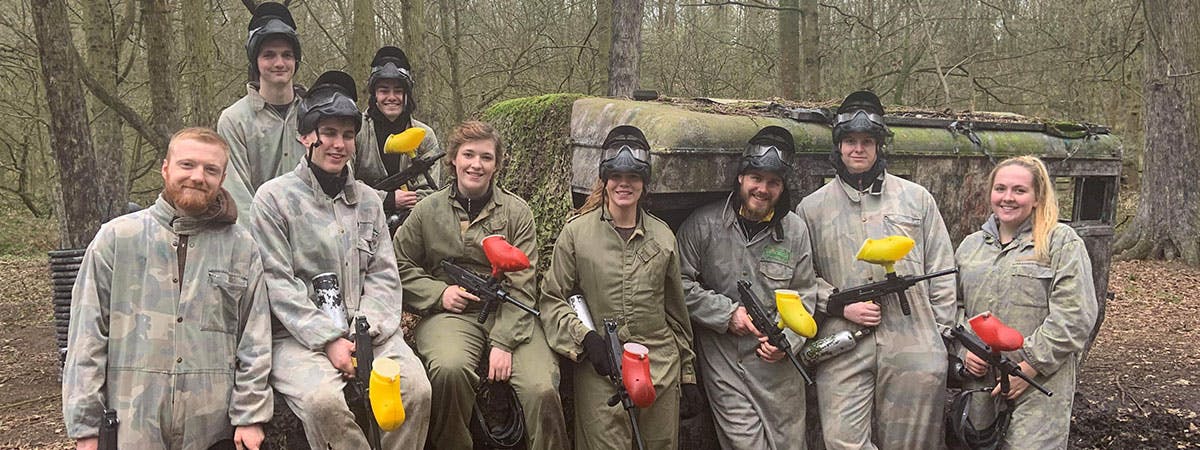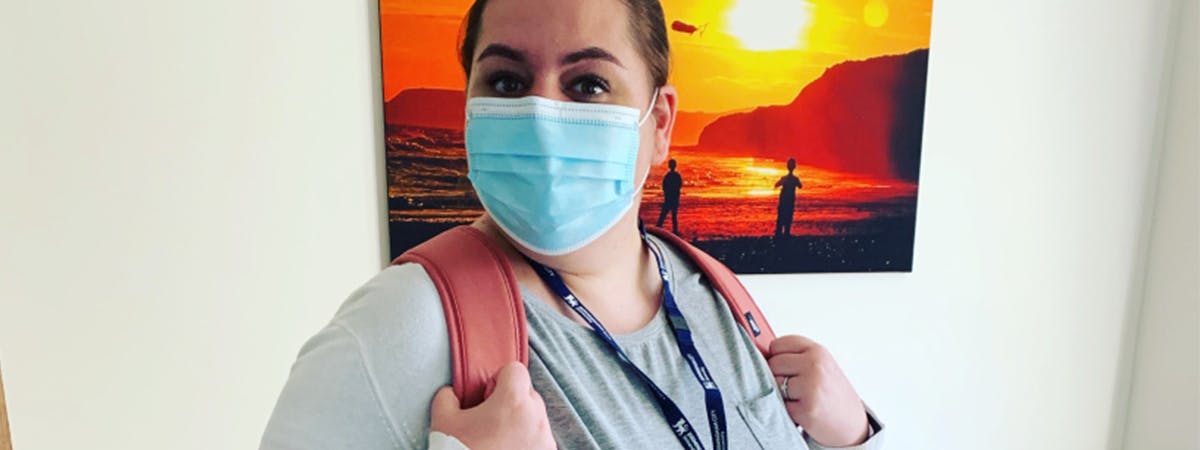Last December, Rosemary Thompson, a first-year Speech and Language Therapy student, took the decision to become part of the NHS Covid-19 vaccination programme. It was in the midst of the pandemic’s second wave, but there was a glimmer of hope as the virus was spreading at a slower rate and the first vaccinations were underway.

Rosemary was motivated by the optimism and wanted to do her bit during the pandemic, as well as gain hands-on experience that would help her with her course – but also, and more significantly, she wanted to be a part of history.
And this is no overstatement as the Covid-19 vaccination programme is the largest vaccination drive in history, reaching a 60 million vaccine milestone in England last month.
NHS England’s lead for the programme Dr Emily Lawson described this milestone as “an incredible achievement, thanks to the non-stop efforts of NHS staff and volunteers, whose actions protect their patients and communities and have saved thousands of lives”.
A surprising start
As a Covid-19 Vaccination Administrator, Rosemary works at University Hospital Birmingham sites, but is mostly based at Millennium Point administering vaccines to patients and providing administrative support.
Although her shifts are long, her role is varied working on the flow team, or making sure patients have a positive experience, as well as ensuring they leave quickly and safely. She routinely vaccinates people and handles the Pfizer vaccine, but she prefers the admin side of her role, where she gets to talk to patients, write up their notes and help them to relax before they get vaccinated.
Rosemary took up her role on 1 April at a time when the over 60s were being encouraged to get vaccinated. She says that watching the infection rate go down in this age group was a rewarding experience.
The first person she vaccinated that first day was a tattooed bodybuilder, who expressed his fear of needles. Rosemary reassured and guided him through the process, and since this first jab, which had an element of nerviness for her too, she has worked 12-hour shifts alongside a nurse to vaccinate more than 100 patients a day.
Rosemary says: “The 12-hour shifts don’t feel like a long day, as they go by so quickly because of the sheer number of patients we see. You really don’t realise until you count how many trays you have completed. In one shift, myself and a nurse will have seen more than 100 people.”
In spite of the busy schedule, Rosemary says, she has met many people and every patient she has seen has said thank you for what she is doing.
While working for the NHS, Rosemary has been also able to talk to nurses about their work, particularly those who work with speech and language therapists. She gleans pieces of information that she takes away with her at the end of her shift that will help her shine in her course next year.
Grab a Jab
More recently, the NHS launched the Grab a Jab campaign to entice people into any number of vaccine hubs during certain weekends to get their first jab. Although pop-ups in supermarket carparks and other community settings are commonplace this year, getting vaccinated can still be a daunting prospect for some people, Rosemary explains.
For those who are remain fearful, Rosemary has some advice to share:
- Take your NHS number to speed up the process, which can be found on NHS letters, prescriptions or any other medical documents. If you can’t find it, use this service to find your NHS number.
- Book online to guarantee a vaccine at a centre near you.
- Take a bottle of water with you – with many people coming through vaccination centres it can get warm, and it’s important to keep hydrated.
- Wear a t-shirt that allows easy access to the top of your shoulder.
- It really is over very quickly, and it is simply just a scratch. I’ve seen people use music, their phones, talking to others and closing their eyes. Whatever you do, breathe.
- Don’t be afraid to ask questions. There is no such thing as a stupid question.
- Please wear a face covering when you are in the building, as there may be times when social distancing is not possible.
- Keep your vaccine card safe as you will need this for your second dose.
- Get your second vaccine! You can book on the link above or by phoning 119, the National Covid Line.
- The NHS app will display your vaccination status after your first vaccine. After your second, you will be able to download paper work with a QR code that can be printed or shown on your device to prove your immunity.
For those who still have their doubts, Rosemary recommends the Birmingham and Solihull NHS Covid-19 Vaccination Service.
Volunteer today
It’s been a major year for volunteering, as people have turned out in their droves to do their bit to tackle the pandemic. The NHS is always looking for volunteers, and staff and students who are interested can get in touch with University Hospital Birmingham to enquire about the roles available.
As people return to regular working patterns, more Covid-19 volunteers are needed. Find out more here.





